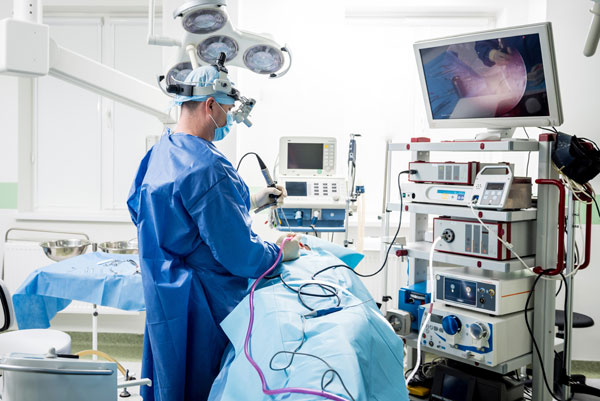Endoscopy: All You Need To Know About It!

Endoscopy is used to diagnose digestive tract mucosal diseases, take necessary samples for biopsy, and carry out specific interventions. Its widespread use is due to the fact that it is an out patient procedure, takes only few minutes and least troubles the patient. This process involves looking into the GI tract with a tube that has a camera at the end of it (an endoscope).
Reasons you might need an Endoscopy
With the use of the endoscope's camera and lighting, doctors examine the inside of the GIT. If necessary, they can also obtain a tissue sample to diagnose cancer or other diseases; this is called a biopsy. It is also used in the treatment of many diseases including cancers.
How endoscopy works
During an endoscopic procedure, a long, thin tube called an endoscope is inserted through a patient's body through a natural opening, such as the mouth, and this tiny camera is attached to the end of the endoscope. It allows the doctors to closely inspect the upper GI tract's lining by sending a video onto a display screen. Via the endoscope, air is injected into the patient's stomach and duodenum to make them easier to see.
Endoscopy is used for
- Endoscopy is used to collect tissue samples for "biopsy" for further microscopical examination. This aids in understanding the severity of certain conditions and confirming or ruling them out. Cancers, inflammation, anemia, and other gastrointestinal disorders are all detected with this method.
- The doctor can use specialized equipment to treat digestive system issues by slipping them through the endoscope. This includes cutting off a tissue growth, expanding a restricted esophagus, cauterizing or burning a blood vessel to stop bleeding, or removing a foreign object.
- To investigate the symptoms: The causes of a variety of digestive system disorders need to be investigated before planning a proper treatment regimen. This includes stomach bleeding, vomiting, swallowing issues, and pain in the abdomen and for all this an endoscopy is quite beneficial.
Benefits of Endoscopy
- Safety: These processes have been established for about a century and have undergone constant improvement, making them trustworthy for many procedures. The complications are the least.
- Quick: Endoscopies can take as little as five minutes or, in some therapeutic situations, as long as an hour or two.
- Painless: Usually a painless procedure. There might be some transient pain due to distension of the intestine.
- Minimum hospitalization: The majority of endoscopies are performed as outpatient procedures, and patients are usually discharged the same day.
- Reduced damage: With the use of narrow scopes and effective visualization techniques, the desired spot is exactly reached. This lessens nearby tissues' collateral damage.
Endoscopy is classified into
- Upper endoscopy
- Colonoscopy
Upper endoscopy: A thin, flexible tube will be inserted through your mouth by a gastroenterologist to perform an upper endoscopy, which is used to examine your stomach, esophagus, and small intestine. In the majority of endoscopy procedures, a camera is located at the end of a thin, long, flexible tube called an endoscope. It displays high-resolution images of your esophagus, stomach and duodenum. Biopsies are also taken during the procedure.
Colonoscopy: To examine the lining of the colon, large intestine, and rectum, your gastroenterologist will insert a flexible tube through your rectum. Colonoscopy, is the most effective method for identifying colorectal cancer, enables your doctor to thoroughly inspect your rectum and entire large intestine. Precancerous polyps are the origin of all colorectal cancer, so eliminating them during a colonoscopy can completely prevent the disease.
Diseases detected by endoscopy
GI endoscopy helps in the early diagnosis of tumors, ulcers, and inflammation. X-rays are less accurate than upper GI endoscopies for identifying malignant growths and examining the upper digestive system.
A message from Dr. Neeraj Goel
Upper GI endoscopy is a simple outpatient procedure which is frequently carried out when the patient is just mildly sedated. The process produces significant information that can be used to plan specific treatments. In certain circumstances, the endoscope can be used to give therapy directly. Upper GI endoscopy rarely results in serious complications.
Dr. Neeraj Goel, a famous GI surgeon with a practice in Delhi, will be pleased to address any questions you may have about it.

 info@gastrodelhi.com
info@gastrodelhi.com +91-9599294453
+91-9599294453